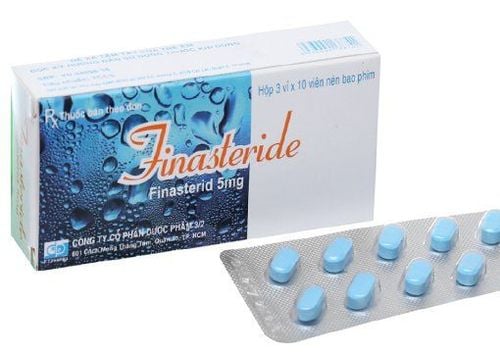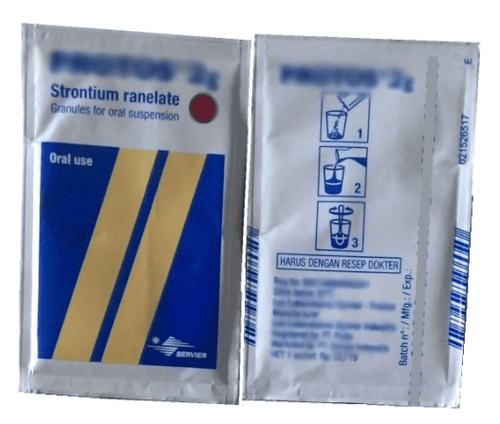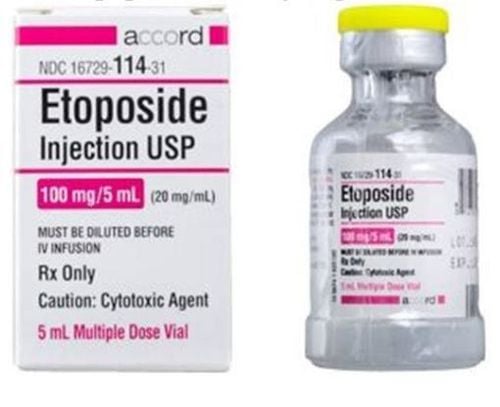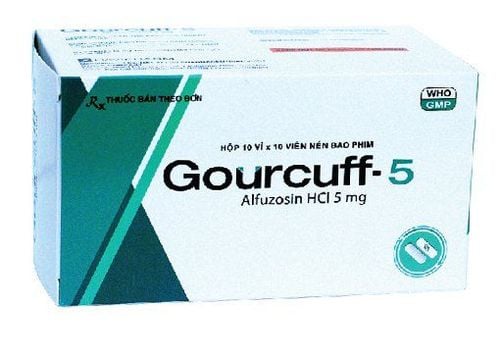This is an automatically translated article.
The article was professionally consulted by Doctor Department of General Surgery and Anesthesia, Vinmec Hai Phong International General Hospital.
In Vietnam, the prevalence of prostate cancer in men over 50 years old is 63.8% and in men 80 years and older, approximately 100%. The disease appears with symptoms such as frequent urination, continuous urination, difficulty urinating... Although it is one of the benign tumors, prostate cancer still needs timely treatment to avoid bad developments later.
1. What is prostate cancer?
The prostate gland is an important organ in the male reproductive system, located just below the bladder neck and surrounding the first part of the urethra. In terms of size, the prostate gland in newborns is only the size of a pea, then grows gradually over time and is strongest at puberty. On average, in men over the age of 20, the prostate gland weighs about 20g, is 4cm wide, 3cm high and 1.5cm thick. The prostate gland plays an important role in the production of mucus and some components of semen.
The prostate is stable at the age of 20-25. However, when men enter their 40s, at this time the prostate gland begins to grow abnormally, causing prostate enlargement. By the age of 80, almost every man has it. Prostate cancer, also known as benign prostatic hypertrophy, is a common disease in men. An enlarged prostate can put pressure on the urethra and bladder, causing symptoms such as difficulty urinating, hesitancy, bladder or urinary tract problems, or other problems. about the kidney.
Usually, the cause of prostate cancer is often due to drinking a lot of alcohol, eating a lot of hot and spicy foods and often fasting urine... Besides, there are also a few factors caused by genetics and age. Candlestick.

2. Symptoms of prostate cancer
The severity of prostate cancer symptoms varies from person to person. But in general, symptoms tend to get worse over time.
2.1. Common symptoms Urinary hesitancy, interruption : This condition is often paralleled with the phenomenon of bladder stones causing interrupted urine or weak urine stream, hesitating...; Urinary incontinence, the feeling that the urine does not go completely: Sometimes people with prostate cancer cannot control the amount of urine, urine comes out on its own while sleeping, the amount of urine may be very little or urination feels incomplete. , just finished going and want to continue; Difficulty urinating: The patient wants to urinate but it is very difficult, the urine stream is weak, sometimes he has to push to urinate. Some patients have dysuria, in which there is insufficient urine output and the bladder is distended. If left untreated, it can lead to impaired kidney function and hydronephrosis; Frequent urination, frequent urination at night; Urinary frequency, but the amount of urine each time is small: The number of times to urinate in people with prostate cancer can increase many times, the amount of urine each time is very little. It is because urinary incontinence leads to a blockage, bacteria deposition in the bladder, increasing the risk of urinary tract infections; Weak physiology: Prostate cancer can cause symptoms such as premature ejaculation, decreased sex drive, difficulty ejaculating...; Unable to completely empty the bladder. 2.2. Uncommon symptoms Urinary tract infections ; Inability to urinate; Blood in urine. The size of the prostate does not necessarily determine the severity of symptoms. Some men, despite the large prostate gland, have few symptoms, while others have severe symptoms despite the small prostate size.
In some men, symptoms even gradually settle on their own and may improve over time. If you have problems urinating or are unable to urinate, see your doctor immediately.

3. Methods of treating prostate cancer
Prostate cancer is a benign tumor. However, patients need to have timely treatment measures, because the longer the disease is left, the more complicated the disease will develop and cause more serious consequences such as urinary tract infections, cystitis or kidney failure...
There are many treatments for prostate cancer. The best treatment option for you depends on many factors, including:
The size of your prostate gland; Your age; your overall health; Effects of symptoms on health. Based on the above factors, the doctor will prescribe the following prostate cancer treatment methods:
3.1. Drug use Doctors will check the patient's condition and then classify patients into groups. If the prostate volume is greater than 25ml but the lower urinary tract symptoms are only mild, the patient will be followed up for 3-6 months to re-evaluate, if the symptoms increase, they will be treated. internal medicine with drugs.
The most used drugs are drugs that support smooth muscle relaxation of the vessel wall, prostate gland or bladder neck to limit the process of urethral embolism caused by fibroids. These drugs make it easier for patients with urinary retention to urinate, but do not eliminate the fibroids.
In addition, some other drugs can also help patients limit some of the symptoms of fibroids. It is possible to use some male and herbal drugs that can treat fibroids such as Crinum latifolium L. C. Crinum latifolium L. C. Crinum latifolium L., ... but this drug will bring some other side effects such as decreased libido, difficult erection, causing other side effects. problems with ejaculation in men.
Medication is the most common treatment for mild to moderate symptoms.
Note:
Taking medicine for the medical treatment of prostate cancer is a commonly used method when the patient has a small fibroid tumor (usually less than 45g); Patients do not arbitrarily buy drugs or use prescriptions of other people to treat the disease; The use of drugs requires the examination and treatment of a specialist doctor to properly treat the disease condition, to avoid unintended cases; Patients need to be persistent in taking medication as directed by the doctor to achieve positive results. 3.2. Laparoscopic surgery method If the method of using drugs is not effective or the disease has serious complications, the doctor will appoint internal surgery. The type of surgery chosen should be based on the size of the prostate gland, the severity of symptoms, and what treatments are available in the area. Currently, the most common method is to apply transurethral endoscopic prostatectomy.
The doctor will insert a very small endoscope into the prostate gland through the urethra to perform surgery to remove the fibroids and suck the fibroids out of the body through the endoscope.
The entire surgical process above is controlled through the computer screen. It takes about 60 minutes to perform. This method is quick, painless, but effective, and can recur because the fibroids are not completely removed.

3.3. Open surgery This is a method that uses high-energy lasers to destroy and remove tumors. The minimally invasive technique helps patients reduce the risk of fibroids, limiting possible side effects during treatment.
The main and most common surgical method today is dissection of prostate fibroids through the urethra. Besides, there are other methods such as making an incision of the prostate gland through the urethra. This procedure causes more complications than other types of surgery but is not very effective and often requires repeat.
3.4. Other methods There are many new methods to reduce prostate size, some of which have not been tested long enough to be safe and with all known side effects. These methods destroy excess tissue without affecting the remaining tissue. Some other methods can be mentioned are laser prostatectomy, laser cutting, transurethral microwave heat therapy or ethanol injection...
4. Notes after prostate cancer treatment

After drug treatment: You need to control your body's health well after basic drug treatment by following these instructions: Limit drinking in the evening; Limit caffeine and alcohol; Limit the use of decongestants or antihistamines; Do not hold urine; Frequent urination; Healthy eating; Do exercise. After surgery: Prostate cancer surgery is a highly effective method, but the patient needs a suitable care regimen for the fastest recovery: Maintain hygiene to avoid infection, live according to the instructions of the doctors; Build a nutritious and scientific diet: Eat lots of green vegetables, fresh fruits, limit hot spicy foods, high in fat and animal organs, limit drinks containing many stimulants... ; Do not drink alcohol, do not go far by bicycle or motorbike; Should not have sex, heavy activity within the first 3 months; After 3 months, if there are no problems, you can return to all normal activities. Prostate cancer is common in middle-aged men and older. The disease can seriously affect life, activities, can cause dangerous complications if not treated promptly. Therefore, you need to know the signs of the disease to see a doctor early and have timely treatment.
Please dial HOTLINE for more information or register for an appointment HERE. Download MyVinmec app to make appointments faster and to manage your bookings easily.













